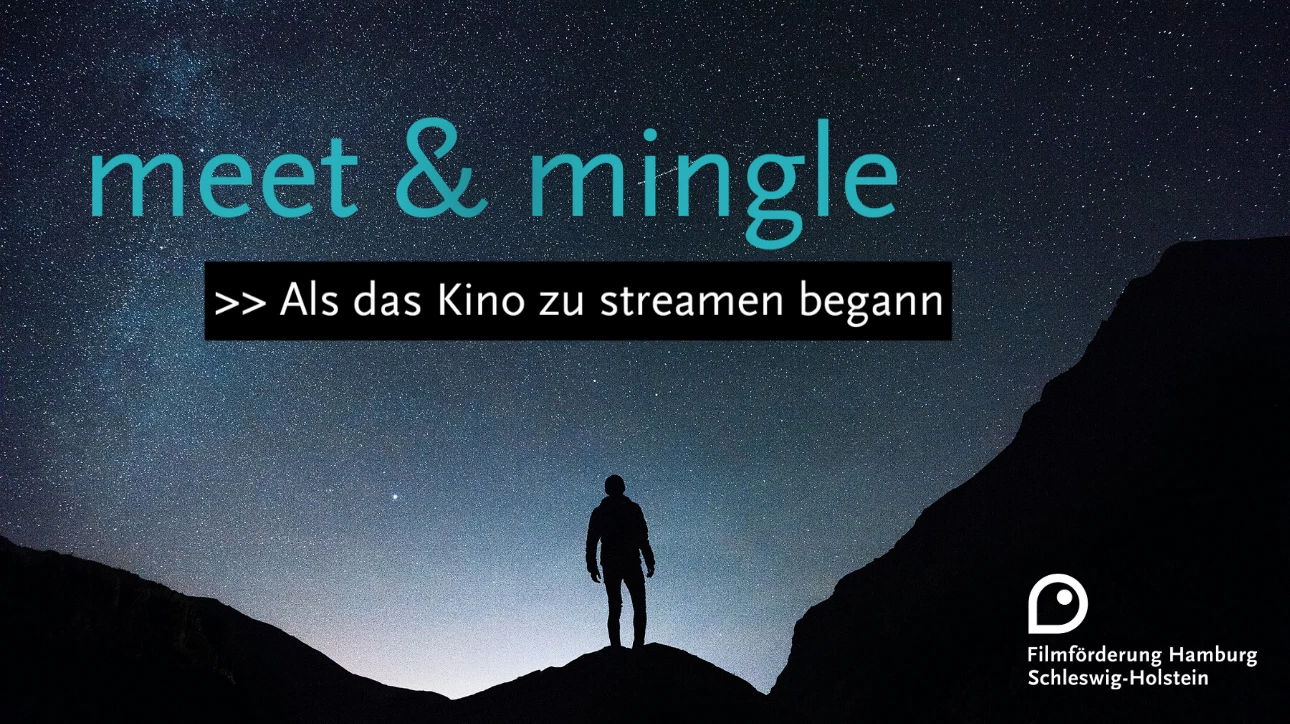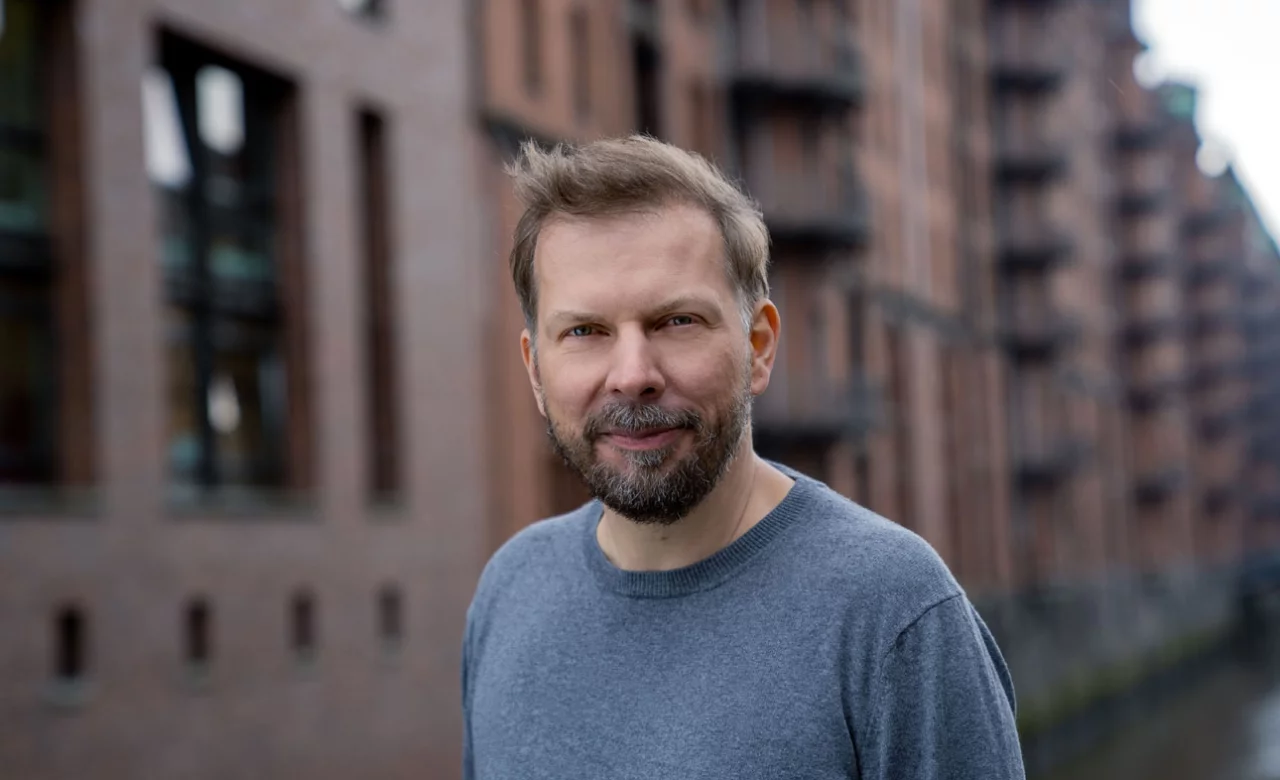
Progress before perfection
18.06.2020 | Keynote Helge Albers (meet&mingle)
On 17 June, FFHSH CEO Helge Albers gave a keynote speech at the meet&mingle online panel on the topic of "When cinema began to stream". You can read the full keynote speech here.
During the shutdown, one of the important questions that overshadowed everything, especially on social media, was what to do with the time we suddenly had. Which books have you always wanted to read, which yoga exercises can you still learn and which series are still on your watchlist?
I can't answer all of these questions well, as I experienced the shutdown mainly as a Zoom marathon. However, I did allow myself one luxury: I cycled to one of Hamburg's cinemas every evening for an after-work beer. That meant yawning empty foyers, warm fridges and cold auditoriums every evening - but also interesting conversations with the cinema operators. Two things in particular stuck in my mind:
Many cinema operators - even if they would never admit it publicly - are die-hard series watchers and Netflix subscribers. Nevertheless, every conversation about streaming triggers almost allergic reactions among them. On closer inspection, however, everyone agrees on where the problem lies: Cinemas simply have nothing to gain from streaming. All existing digital models bypass cinemas and, in case of doubt, cost customers.
The second important insight is the oft-repeated statement that cinema will always exist, as it has already survived the war, the introduction of television and the VHS cassette.
To put it kindly, this statement of faith is the famous whistling in the woods, because of course the cinema did not survive any of these crises unscathed. Audience numbers halved after the war, with the introduction of colour television they fell by half again and we'd rather not even talk about the eighties.
After every major crisis, "the cinema" was no longer the same as before. "Cinema" did not simply survive these crises, it had to change and evolve.
We are now at such a turning point again. After months of lockdown, cinemas can slowly open their doors again.How will cinema change after this crisis? How will it develop now?
There are at least two possible answers to these questions:
We can answer them by keeping our feet still, doing everything as we did before the crisis and hoping that everything goes well again. Hope that the shift in exclusivity, exploitation windows and business models that is currently emerging in the US market will not affect us. Hope that there won't be a second wave of coronavirus. Hope that fewer films will finally be produced and released. Hope that cinemas can programme more flexibly.
But there is another answer. An answer that relies not only on the principle of hope, but on the principle:
Progress before perfection
The digital world has internalised this answer, and every piece of software and every modern industrial product is based on this approach. No car that comes onto the market is fully developed. No computer that comes onto the market is fully developed, nor is any SVOD platform - neither technically nor in terms of business models. Agility and willingness to develop are perhaps the most underestimated competitive advantages of streamers.
Even digital models for the cinema industry do not have to be perfect at the time of their birth.The Kangaroo Chronicles with Amazon Prime,System sprinkler on CVOD.de, cinema on demand or the digital release of Fynn Kliemann's documentary100,000 - Everything I never wanted by notsold GmbH - every experiment brings new insights, helps with "sharpening" and understanding.
Individual solidarity campaigns, "indulgence models", donation campaigns or crowdfunding were important as acute measures and balm for the soul of cinemas, but they are not a basis for future business models. It is important: New models and prototypes must not only be tolerated as an exception, but must be systemically desired. We need thinking spaces and playing fields for these new models so that the cinema and film industry does not come to a standstill, both creatively and economically. It is foreseeable that one of the biggest players in the German and European cinema market, the public sector, will hardly be able to grow substantially for years to come. Tax and licence fee income will fall massively. According to current estimates, this will amount to almost five billion euros in Hamburg over the next four years, and the situation is no better elsewhere. Tapping into new audiences and revenue streams is therefore not a "nice to have", but a life insurance policy.
Don't get me wrong: I prefer to watch cinema films on the big screen. The collective experience and the opportunity to fully immerse yourself in a theme, a story, doesn't work in such a unique way anywhere else. The cinema is the transit space between reality and dream. It is not easy to see that this space is struggling to survive. In a way, it is therefore pure cinematic self-interest to take up the cudgels here for "the cinema" to adopt a new mindset. I would like to see a lot more digital ambition so that I can continue to go to my favourite cinema around the corner for as long as possible.
Thanks to government aid programmes and its own reserves, the cinema industry will hopefully survive the lockdown and its consequences relatively unscathed. We can't afford a second March 2020. To assume that coronavirus is simply behind us, that hopefully there won't be a second lockdown, is negligent. Immobility is therefore currently the biggest threat to the future of cinemas. Now is the time to prepare ourselves systemically. Now is the time to shape the cinema as a space of possibilities that also extends into the digital realm and from which cinemas can also benefit. With predictable models and not on a donation basis. Progress before perfection.
Recording online panel

more articles







